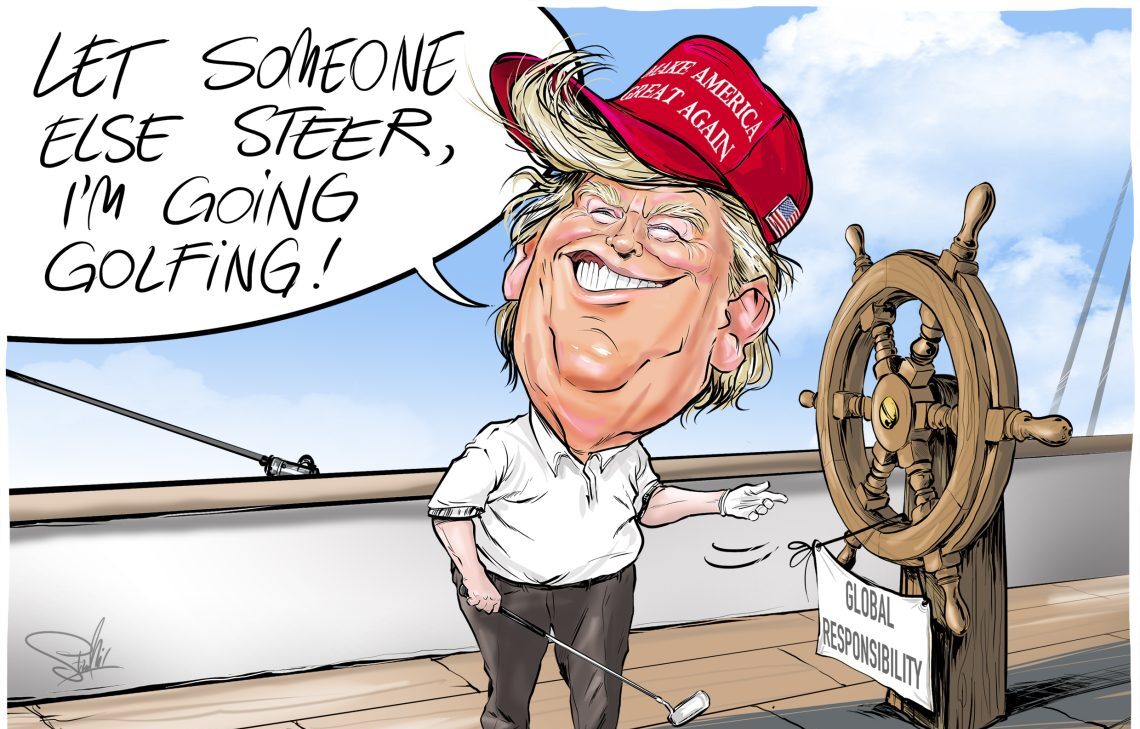Taxation horrors and Europe’s frustration
At their meeting in Tallinn, Estonia, in mid-September, European Union Finance Ministers discussed new measures for taxing internet-based companies. They want to establish a system that could be brought to the Organisation for Economic Co-operation and Development (OECD), which would adapt these measures to global standards.

Whew! Finally, wealthy companies like Google, Facebook and Apple will be taxed and punished for their rapacious capitalist methods to the detriment of European taxpayers.
Of course, this is the populist side of the story. The cynical side is that there is an undeclared economic war between the United States and the EU. On one side, the U.S. Department of Justice issues fines against European companies for the alleged violation of American laws. On the other side, Europe retaliates with tax claims resulting in complicated schemes that are administrative nightmares.
The OECD has a program to limit practices called “base erosion and profit shifting” (BEPS), which is supposed to ensure that companies are not moving their results to jurisdictions with lower taxes. The scheme is extremely complicated, opens wide possibilities for arbitrary assessment and abuse of authority, and probably costs more than the additional tax revenue it generates.
The more complicated a system is, the more vulnerable it is to manipulation
The new measures discussed in Tallinn are likely to produce a similar nightmare, and will also affect European businesses.
Unfortunately, these are just some examples of an illogical, overly complex and oversized system. This is not only a European problem, it is a global problem. The more complicated a system is, the more vulnerable it is to manipulation. Taxpayers’ abuse of the system might even increase, but such complexity will especially lead to a high degree of legal insecurity and arbitrary application of the rules. In any case, it creates huge, unnecessary costs for the economy. All this is harmful.
Remedies are very easy. Simplifying tax systems would save enormous costs for governments and taxpayers. It would not necessarily reduce taxes received, but it would relieve resources and therefore benefit the economy and society. It will result in more freedom and reduce citizens’ dependence on the authorities.
European complex
The Tallinn decision might also be an indication of a European “inferiority complex” in the face of American tech giants. But instead of slapping new taxes on these companies, Europe should ponder why it is less competitive than the U.S. in the field of technology.
It might want to start by looking at differences between the European and American defense industries. Defense is one of the only areas where government programs bring innovation, and such research and development has frequently resulted in new technologies for civilian use. A striking example is that both the internet and Silicon Valley got their start through U.S. Department of Defense projects. Over the last 60 years, the U.S. has invested heavily in defense. This has not been the case in Europe.
The main remedy, however, would be for Europe to adapt to a culture of increased innovation and entrepreneurship. Rather than public grants schemes for innovative endeavors, this would simply mean fewer restrictive regulations. It would also require a less risk-averse attitude and a better ability to accept failure. New ventures frequently fail, but in Europe, especially among government authorities and financial institutions, few are willing to excuse such failures or offer a second chance.
The solution – so simple, but apparently difficult to implement – is streamlined taxation and regulatory systems, and especially a better acceptance of risk and failure.
Read the full GIS statement here ->
Taxation horrors and Europe’s frustration
GIS is a global intelligence service providing independent, analytical, fact-based reports from a team of experts around the world. We also provide bespoke geopolitical consultancy services to businesses to support their international investment decisions. Our clients have access to expert insights in the fields of geopolitics, economics, defense, security and energy. Our experts provide scenarios on significant geopolitical events and trends. They use their knowledge to analyze the big picture and provide valuable recommendations of what is likely to happen next, in a way which informs long-term decision-making. Our experts play active roles in top universities, think-tanks, intelligence services, business and as government advisors. They have a unique blend of backgrounds and experience to deliver the narrative and understanding of global developments. They will help you develop a complete understanding of international affairs because they identify the key players, their motivations and what really matters in a changing world. Our experts examine the challenges and opportunities in economies old and new, identify emerging politicians and analyze and appraise new threats in a fast-changing world. They offer new ideas, fresh perspectives and rigorous study.
































